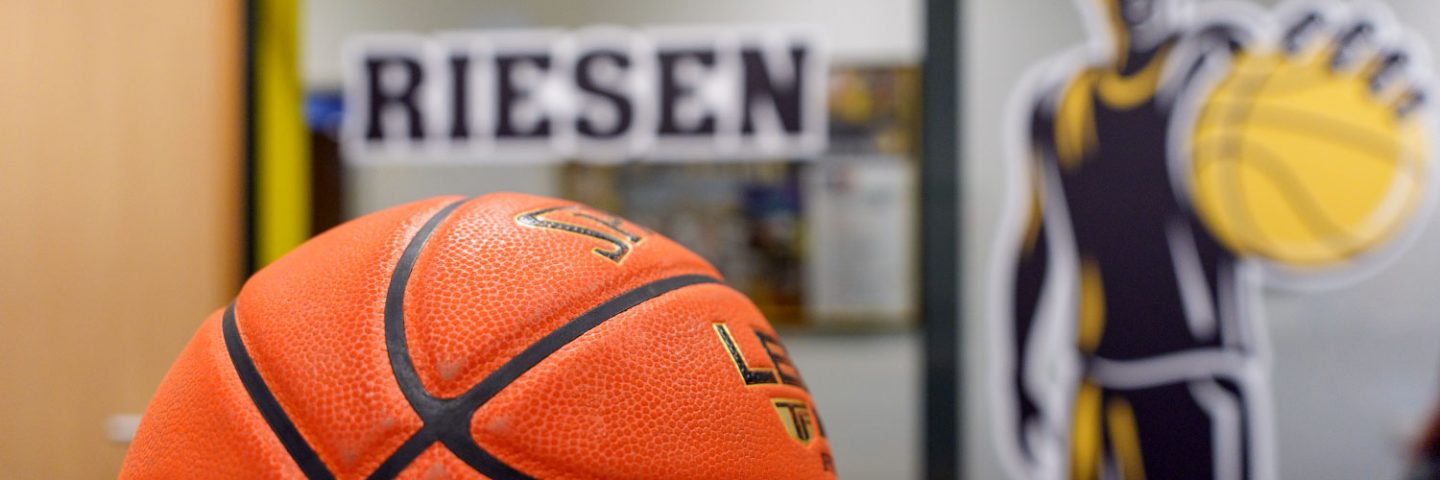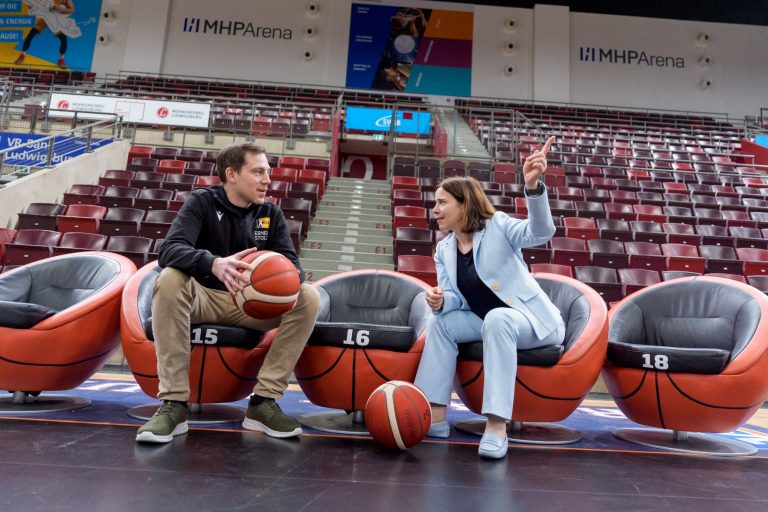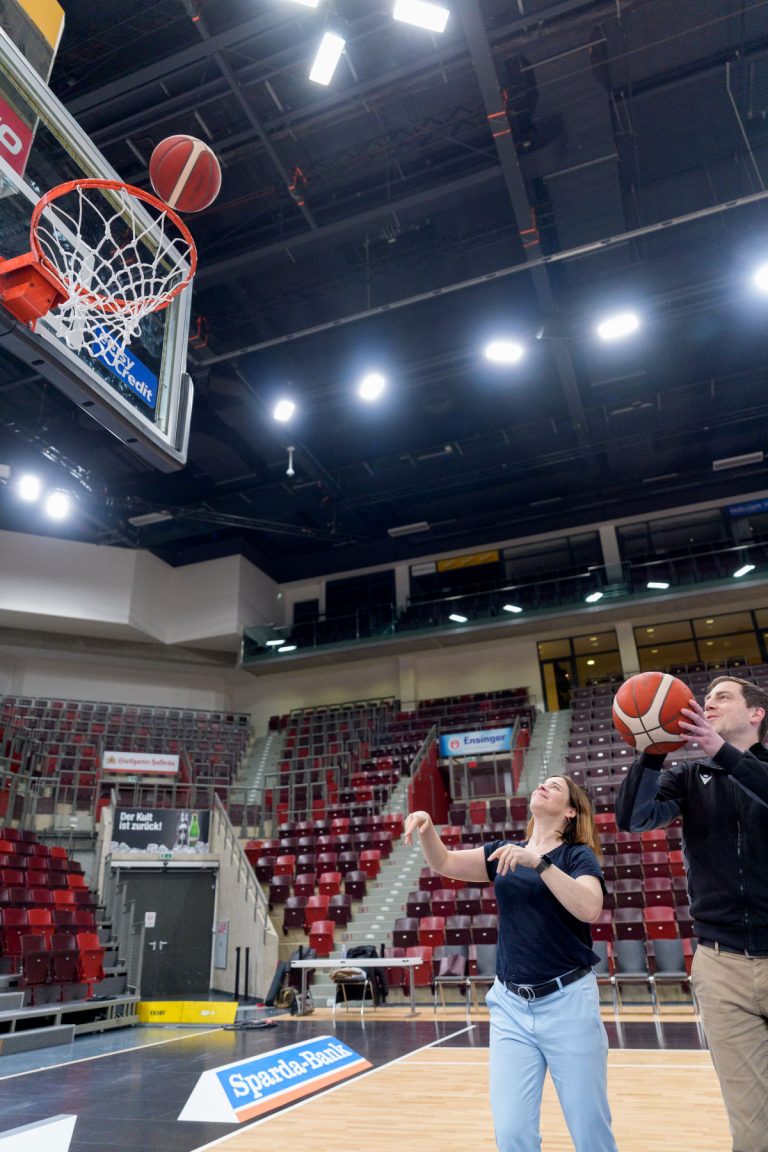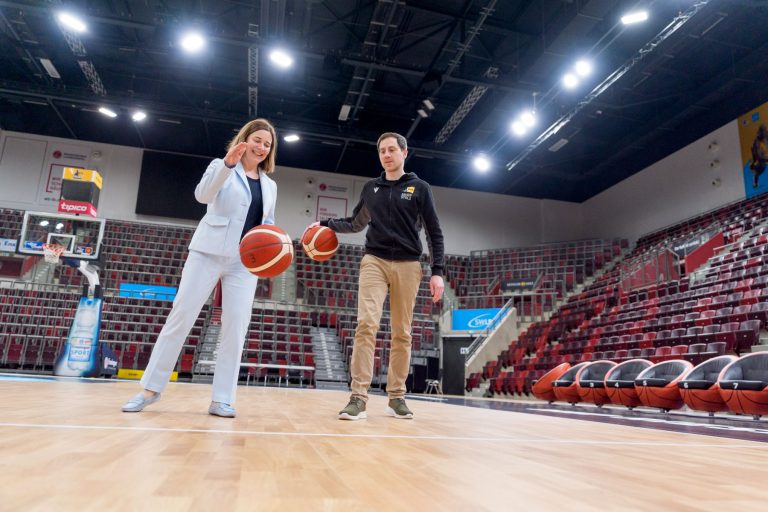
Probst: Firstly, we look at a few basic prerequisites for players: height is of course an advantage in basketball, along with arm length and hand size, as well as athletic and coordination skills. Since we’re dealing with a ball and team sport, the ability to play well is also an important factor, as are technical skills such as dribbling, passing and throwing. So while it’s often advantageous, you don’t necessarily have to be the fastest or the biggest to succeed. Of course, we also can’t forget the mental strength and nature of the player. We don’t need loud alpha leaders, but a mixture of top performers and role players. We need a good understanding of the roles on the pitch and we also need players who can keep the mood up when things don’t go well. The overall package must therefore fit.
Kauke: That’s not too different from our approach. The mindset must be right. We check whether the person fits in with our team at LAPP. Especially when it comes to trainees or student workers, it’s important to recognise the potential for development within them. We therefore try to make the training as broad as possible in order to tap into potential. We also develop employees in whom we identify potential.
Probst: There really are many parallels. Our coaches are our most important scouts. They judge the athletic skills of the boys in the game as well as how they interact with fellow players and coaches or respond to criticism. For underage players, of course, we also talk to the parents to get a full picture of the player and his nature. A lot of the assessment is ultimately about gut feelings, but above all, a wealth of experience.

Kauke: Experience also plays a big role for us. It’s important to see how someone reacts, whether someone is overly sensitive or proud, for example. We hold assessment centres for important positions, where our HR professionals can quickly sense whether the person is a good fit for us using a special questioning approach.
Probst: Our assessment centre is the probation period of 1-3 days. The players stay with us at the boarding school, attend lessons and train with our teams during this period. You can then quickly determine whether someone would fit into the team in the long term.
Kauke: That’s a good approach. At our plant in Italy, we give interested parties the chance to work in production as a trial. Anyone who is not hired afterward will still at least receive a certificate from us so they can show the evidence of their commitment to the next employer.
Probst: We currently have the luxury of high applicant numbers. We invite players we are interested in as well as regularly organising try-outs with over 100 applicants from all over the region, who can test their skill with us in the hall. As a rule, however, only 1-2 players are then accepted into our academy. Anyone who does not succeed in joining the team will receive feedback from us on what they’re still missing.
Kauke: That sounds enviable. We used to be able to fill laundry baskets with all the applications we got. Now, we need to advertise ourselves to potential new talent very intensively and position ourselves as the best employer. This is also one of the reasons why we are committed to RIESEN. We also advertise ourselves as a special employer at universities and schools. We don’t actually have any real “try outs”, with the exception of the previous example in Italy. However, LAPP offers great additional benefits for employees and a variety of career opportunities, and everyday working life demonstrates the good fit.
Probst: Yes, that’s a huge difference. We receive applications from all over the world. International tournaments in particular have a huge impact.
Kauke: Incidentally, we are particularly keen on applicants who take part in sports. They have a team spirit and want to deliver good performance. At our branch in Switzerland, we cooperate with the association for competitive sports. Athletes who train for the Olympics take part in an apprenticeship with us at the same time, and we ensure that the training times do not clash with the apprenticeship times.

Probst: Team sports have brought a lot to my life on a personal level. Especially when you don’t have siblings, sports play a great positive role in personal development. Of course, not everyone who comes to us can become a professional player, but everyone benefits from the experiences they gain in a team sport. People who are good team players tend to be successful in life – regardless of whether or not this involves basketball.
Kauke: Exactly. The further development and retention of employees is also very important to us. Nevertheless, there are always people who eventually leave our company. However, we keep in touch and sometimes experience “boomerang” individuals who come back to us because they see that we are passionately committed to our employees and that “the grass is not greener on the other side”.
Probst: Speaking of team thinking. Without it, you can’t achieve much. As soon as a player thinks he’s great, that’s always the beginning of the end. After all, players and coaches always need to keep developing. This also affects the team in the background. Everyone is working together to achieve joint success.
Kauke: Just don’t come to a stop… nothing works without the team here, either. Our sales representatives are directly with the customer and provide advice, but the back office has to support them with tailored connection solutions for the customers and ensure that, with the help of our logistics team, our products reach the customer just in time. After all, we want to be the best in the business.
Probst: We aren’t aiming quite that high, but we definitely want to be in the top 4 in Germany…
Kauke: That’s not enough for us – and particularly in the Stuttgart region, we want to increase recognition of us as an employer, for example. We are a “hidden champion” here, but we want to be more visible. That’s why we combine our sponsoring activities with our local roots. We wish to inspire new talent to join us.
Probst: We are very happy that LAPP chose the MHP RIESEN. Our partners keep us going. Without them, there would be no academy, and this dedication is enormously important for the national league team as well.
Kauke: And we both benefit from this, as I believe that we can still learn a lot from each other, especially when it comes to talent scouting and team development.

